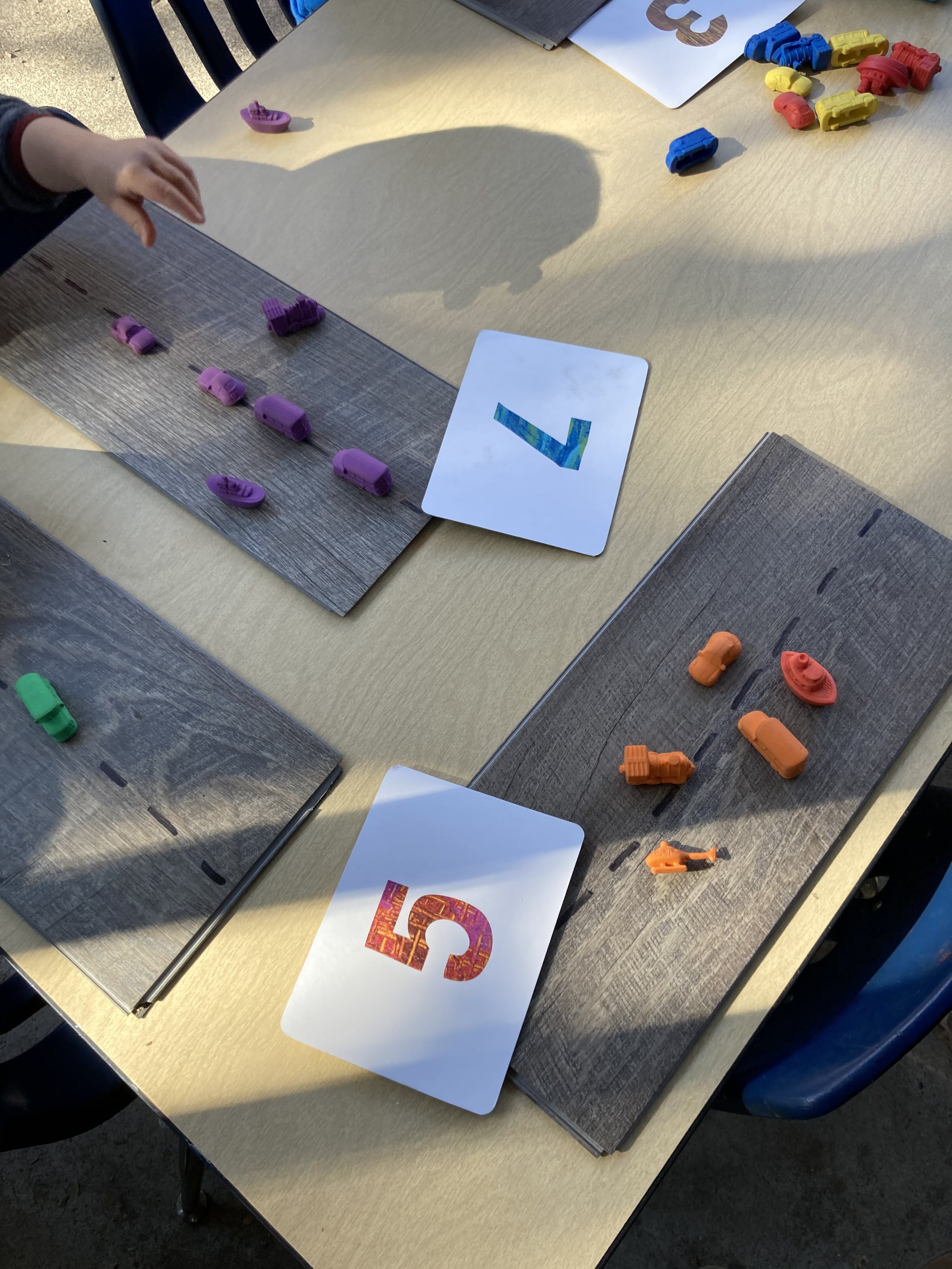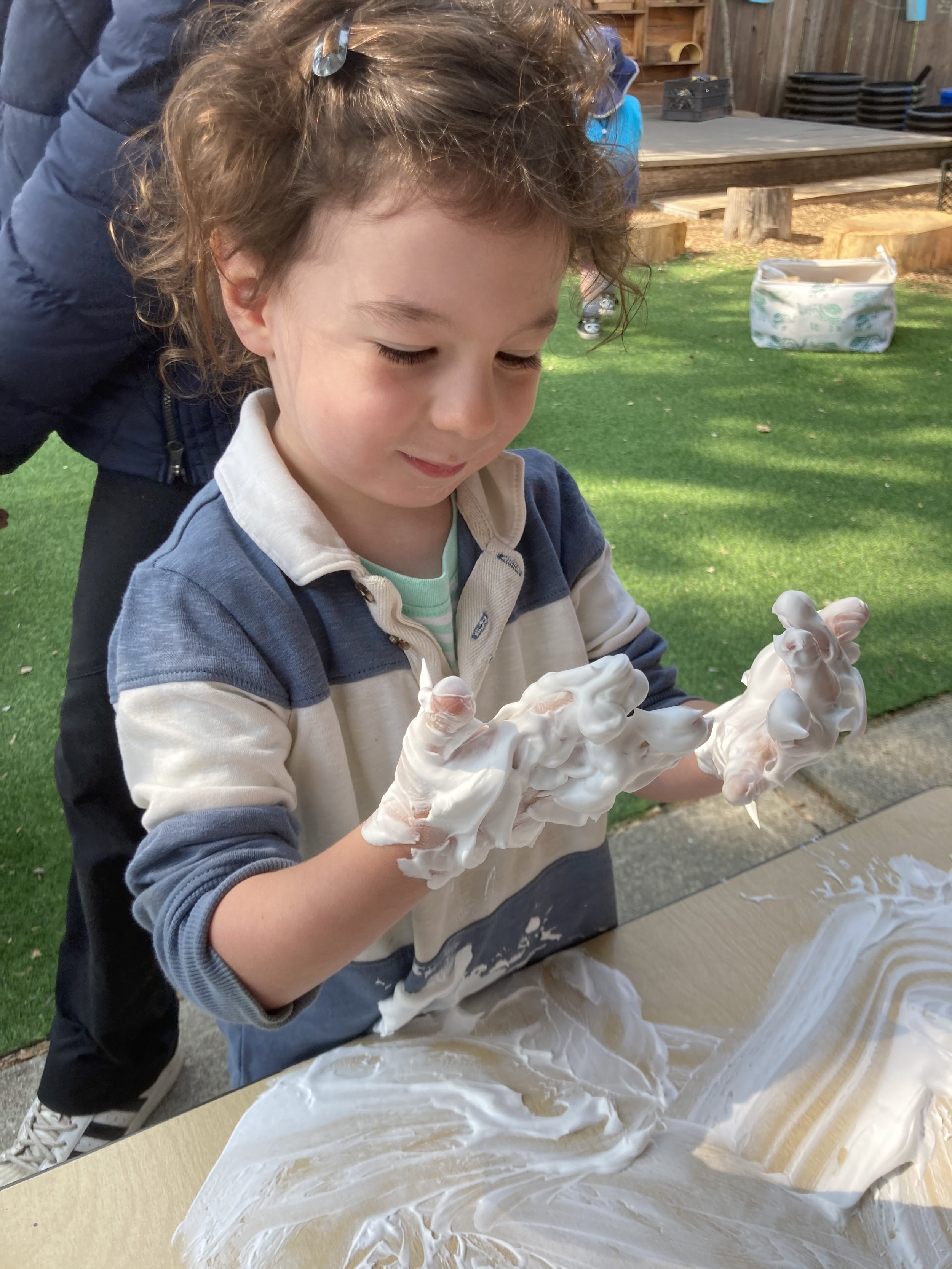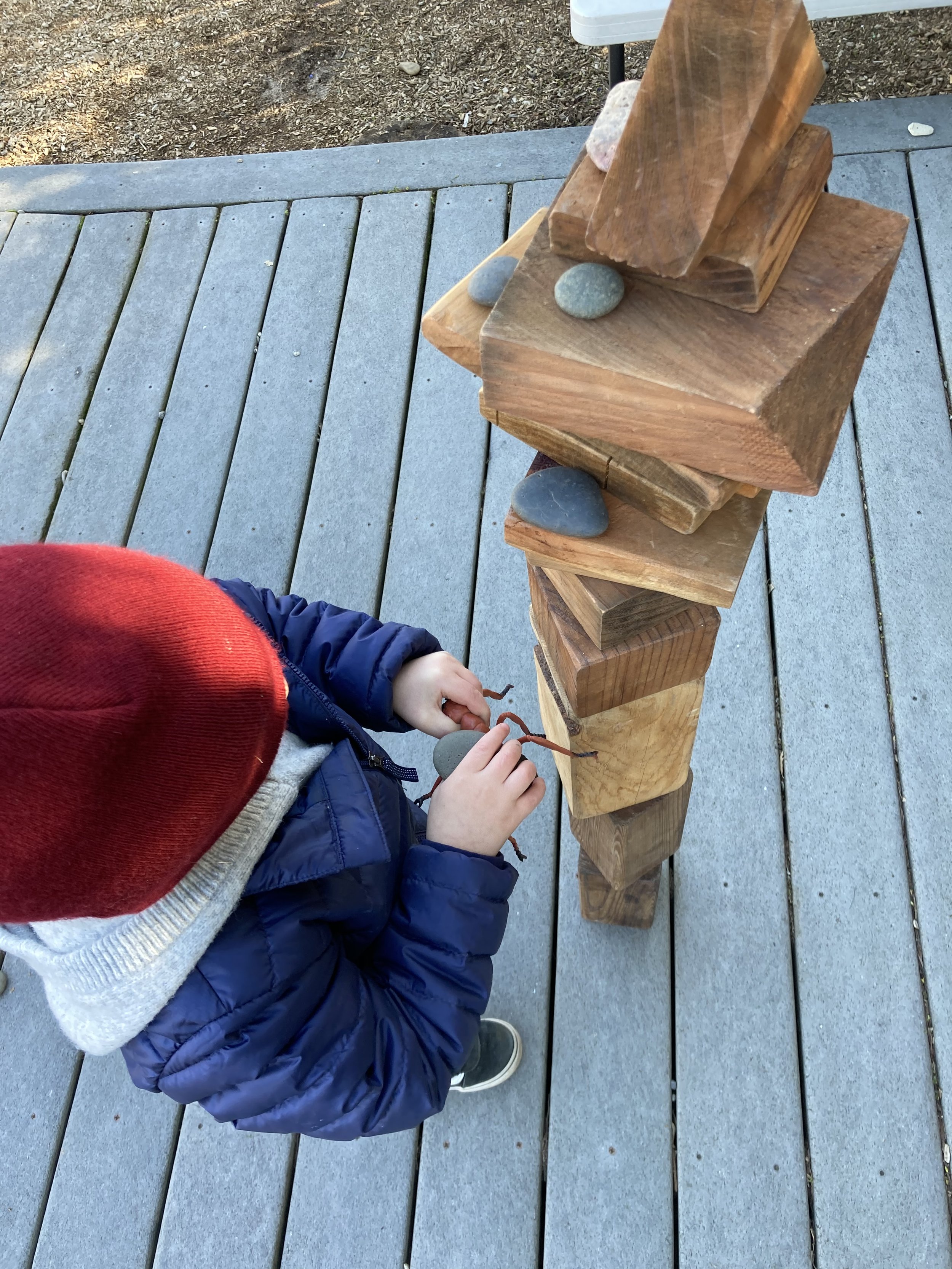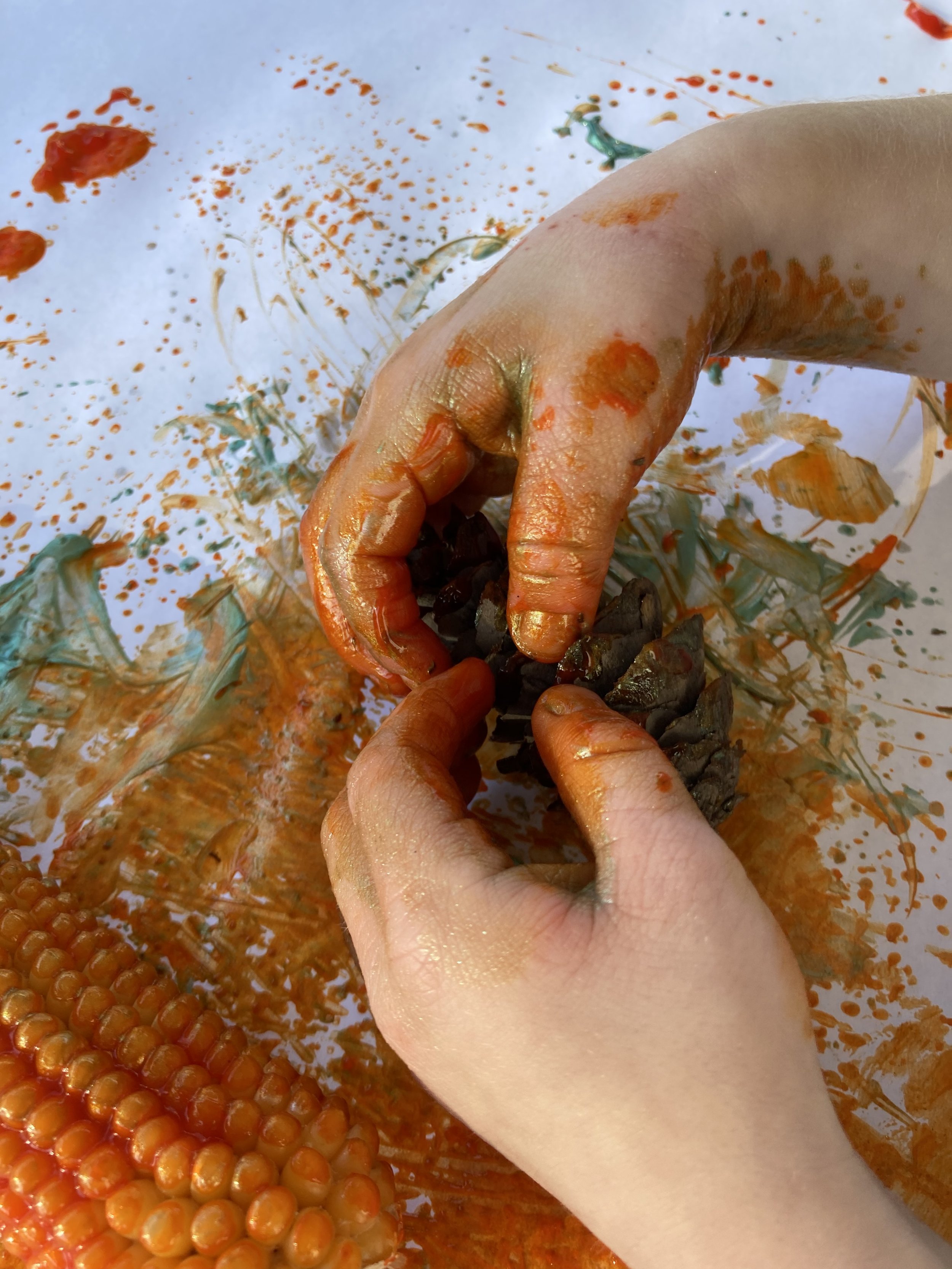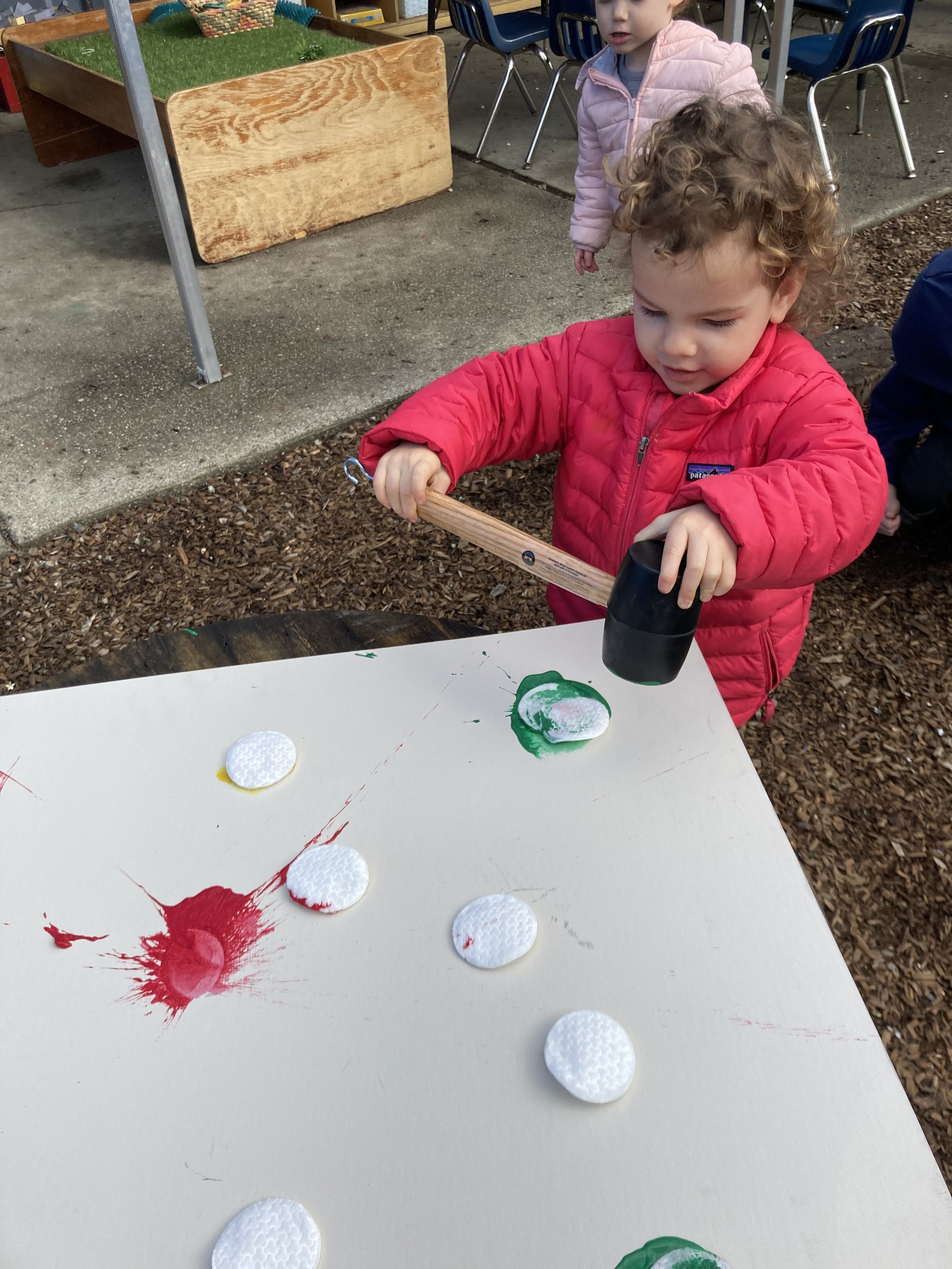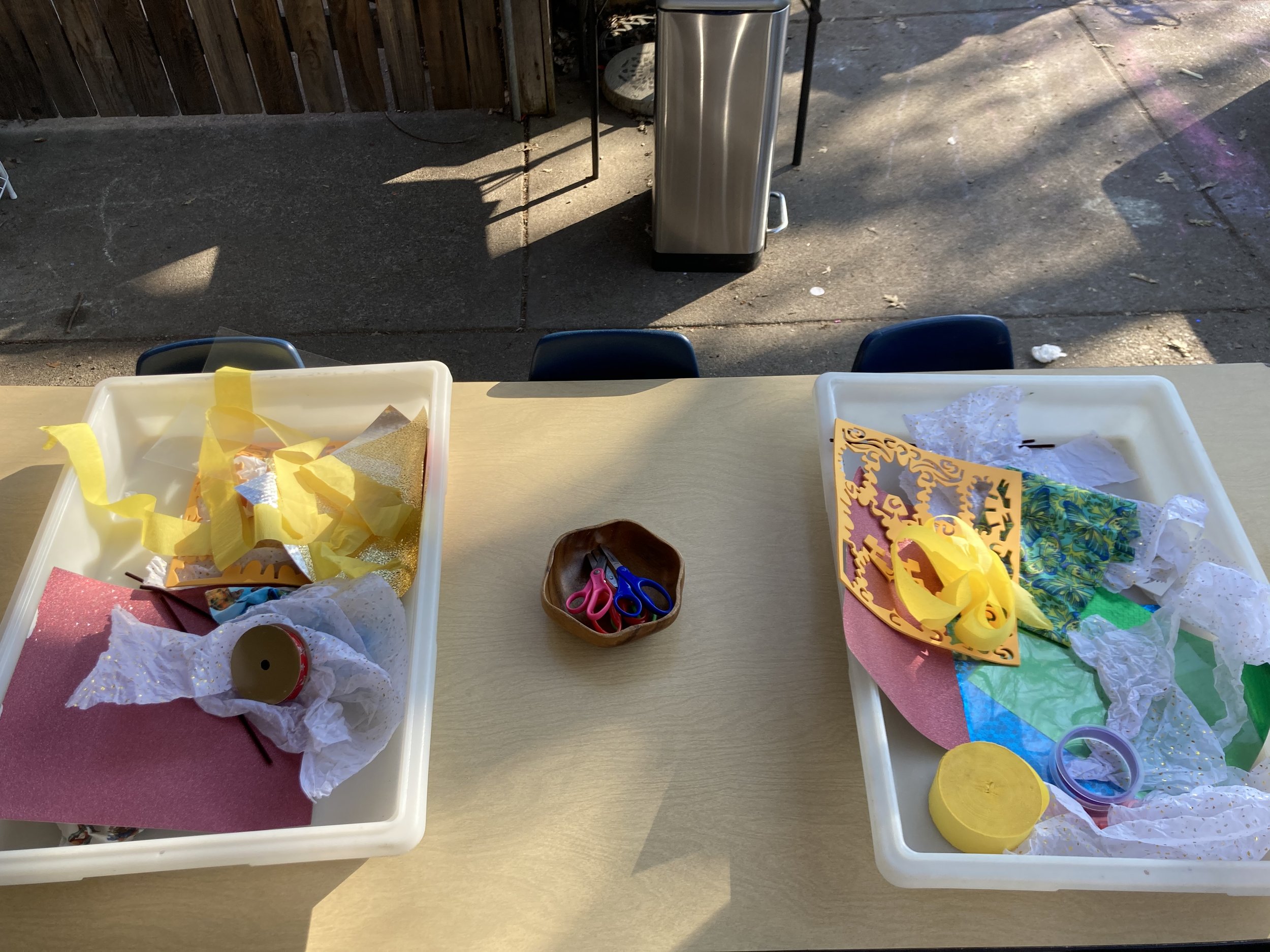
Our Philosophy
Seasons of Wonder embraces a developmental approach to early childhood education and care. The curriculum focuses on all aspects of a child’s growth and development – intellectual, physical, social, and emotional. We follow the Reggio Emilia approach and principles including Emergent Curriculum, In-Depth Projects, Representational Development and Collaboration. The teachers learn alongside the children, help guide and document their inquires and constantly observe the learning.
Children learn through experiences with equipment and materials coupled with nurturing and helpful interactions with adults and peers. The learning environment is carefully set up to encourage children to think, solve problems, and take risks. Materials that serve many purposes such as sand, water, and sticks are regularly available. Children (and staff) will get messy! Creativity is emphasized not only through painting and other art activities, but also through play with blocks, storytelling, and dramatic play.
Language development is enhanced through emphasis on verbal interactions with other children and adults. Reading to children and the availability of writing materials throughout the environment encourages the development of reading and writing.
Principles
-
Self-guided learning
Teachers carefully observe and monitor children to gauge their interests. They use this knowledge to prepare the learning environment and find meaningful work and activities for each student.
-
Emergent curriculum
Teachers don’t use a one-size-fits-all curriculum. Instead, they observe children, ask them questions, and listen to their ideas. Understanding what children are drawn to informs our curriculum accordingly. A topic of study could last a day, a week, a month or more!
-
Project based learning: Importance of projects
Projects can be short or long-term. They allow children to pursue deep and interesting ideas, and explore them in great detail.
-
Relationship-driven classroom
Teachers consider each child’s relation to their family, other children, the teachers, the school environment, the community, and wider society. The Reggio classroom is set up to promote lots of interaction. Children interact with teachers throughout the day, and they often work with their peers in small groups of two to five.
-
Many modes of learning
Teachers create environments where children can use many modes or languages to learn (sometimes called the “hundred languages.”) These modes include drawing, painting, modeling, sculpting, music, dance, poems, stories, and more. Children are also given a wide range of materials to express themselves, such as paint, clay, wire, and natural and recycled materials.
-
Family involvement
Families (parents/guardians) are considered a vital part of education. In fact, parents are encouraged to be very involved in school. This can take many forms, including day-to-day interaction, advising and working with staff, helping out in the classroom, and attending field trips.
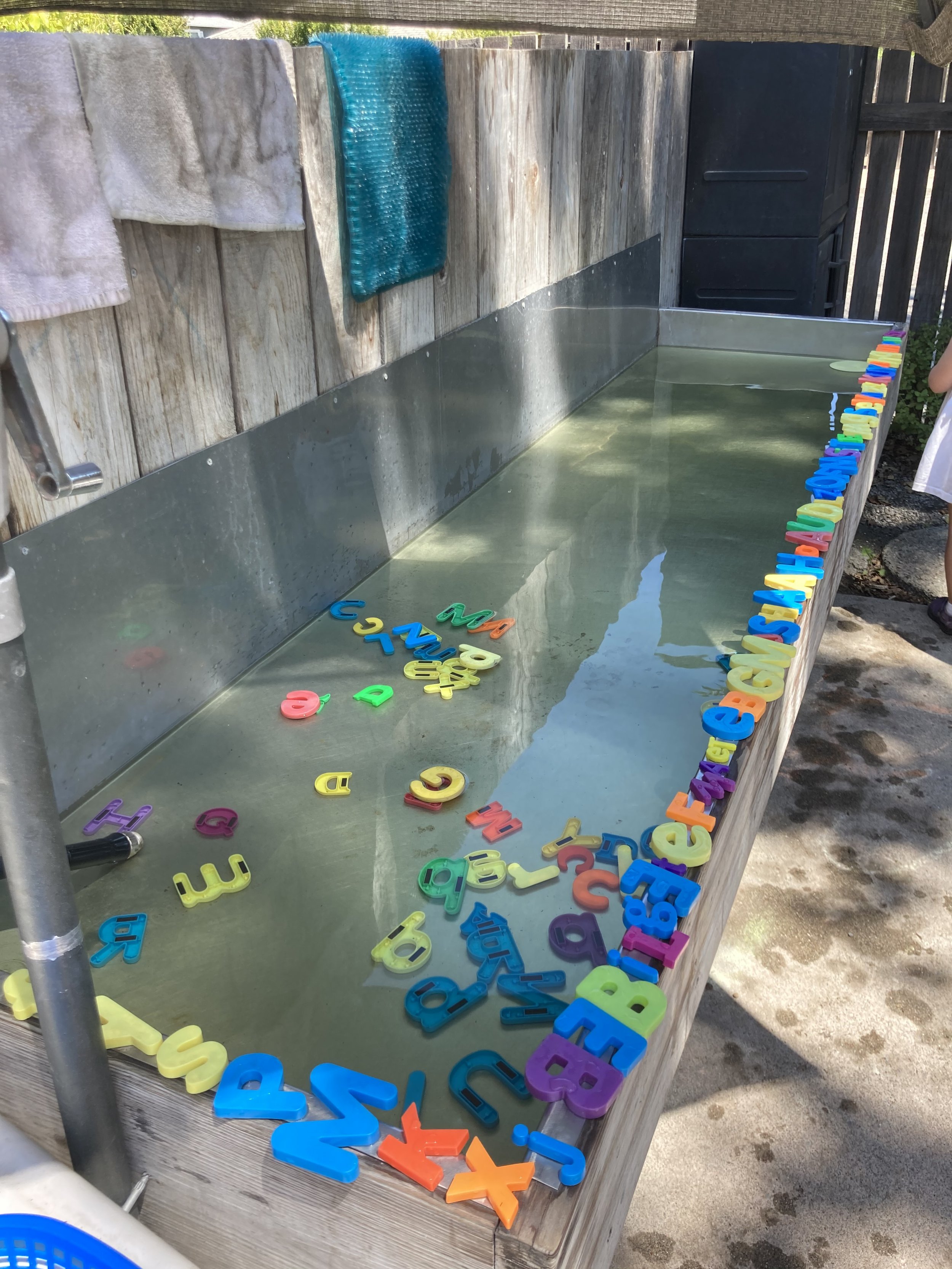
Curriculum & Framework
Our curriculum strives to reflect the children’s interests, abilities, cultures, and families.
Curriculum planning is ongoing and evolves as we continue to observe the growth and interests of the children. Learning experiences are developed to address all areas of growth, e.g. social-emotional development, physical development, cognitive/creative development and language development. A wide variety of activities will be planned to offer an in-depth study on a topic of interest, e.g. families, bugs, balls, etc.
The Project Approach
We utilize The Project Approach. The Project Approach, as the name suggests, focuses the children on particular topic of interest for a period of time. A project is an in-depth investigation of a topic. The topic comes directly from the children’s interests and involves children’s attention and energy. Projects involve children in conducting research on events worth learning about in their own environments. The teacher assesses what the children already know about the topic and develops a list of things the children express curiosity about. A topic “web” is then organized as a structure to guide the project.
While gathering information on the chosen topic, children have the opportunity to:
ask questions, to generate theories and predictions concerning possible answers
to seek answers to their questions
to interview experts and others from whom relevant information can be obtained
engage in other activities involved in collecting information
Taking from the Reggio Emilia approach children will engage in specialized art exploration in our atelier and construct knowledge using the community around us. Our environment consists of beautiful, thoughtfully placed materials meant to provoke wonder and depth of knowledge.
We utilize our outdoor spaces as the primary classroom filled with art, math, science, large motor and social opportunities. Children should prepare to get messy through hands on sensory exploration, art and gardening!
